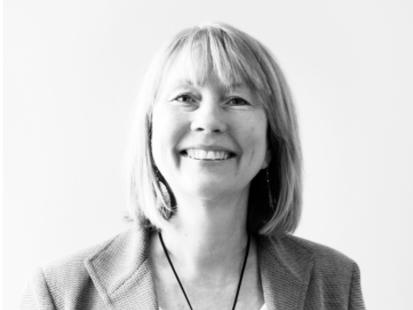
Karen Yelick
MBA ’81, CEO, Indego Africa
Industry
From Corporate Capitalism to Conscious Commerce
“I ran what was called the War Room — conflicts clearance for investment banking, and it was a 24/7 job,” recalled Karen Yelick (MBA ’81), a mother of three. After 24 years with Merrill Lynch, which Bank of America acquired in 2009, she decided to transition into the social sector in 2011 . “I had always wanted to do something in the social enterprise space related to women and education. It was time,” said Yelick.
She found “the perfect fit” with Indego Africa, a nonprofit that partners with Rwandan women artisans to sell their handmade products in the United States market. Profits from sales, coupled with donations, fund education programs for the artisans. “I wanted to join a group that was on the verge, to help take it from a startup to the next level,” said Yelick, who is now Indego Africa’s CEO.
Indego Africa’s brand and product line have grown, its products are sold online and to retailers, including Anthropologie, J. Crew, Nordstrom and TOMS.
Rwanda's Rise From the Ashes
After the 1994 genocide, 70 percent of Rwanda’s population was female. “The rebuilding of Rwanda was driven by the energy of women,” explained Yelick. “If a road needed to be built from a small town to Kigali, women built it. This country literally rose from the ashes.”
As the country rebuilt itself, a culture of reconciliation evolved. “Among our artisan partners, you see Hutus and Tutsis working alongside one another. It’s very cohesive,” said Yelick.
Indego Africa offers women artisans the resources and opportunities to help them lift themselves and their families out of poverty by giving them access to the global marketplace and education. “We work with 600 women, most of whom have, on average, five children. That means we’re impacting more than 3,000 people a year,” said Yelick.
In October 2014, Indego Africa launched a Leadership Academy in Kigali, Rwanda, which provides free advanced business education to 25 women each semester. Based on her positive learning team experience at Darden, Yelick decided to create study groups at the end of each lesson, which have been effective for the students — who are from 12 different artisan cooperatives — to learn from each other.